Restaurante Código de Barra



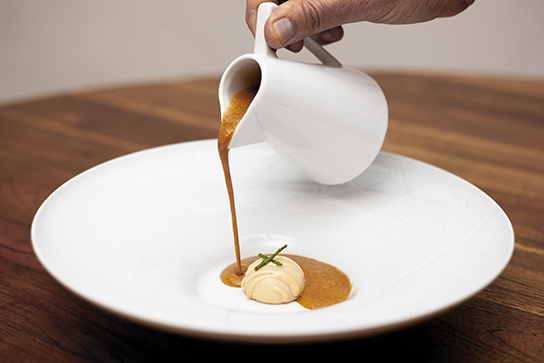
HISTORY, CUISINE AND TRADITION
Phoenicians, Greeks, Romans... and many other cultures have left their mark on this city in terms of their cuisine, of which there is a great deal to be told.
SEE MOREOUR MENU
A tribute to the mark left by different cultures on the cuisine of Cadiz through gourmet innovation.
FIND OUT ABOUT IT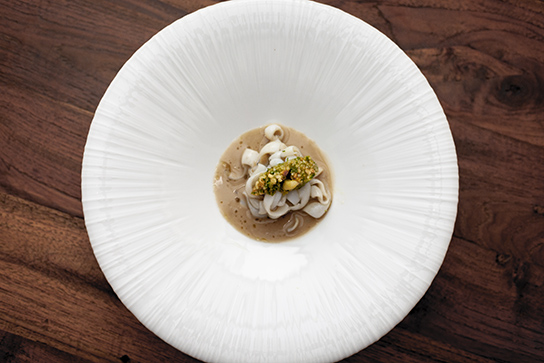
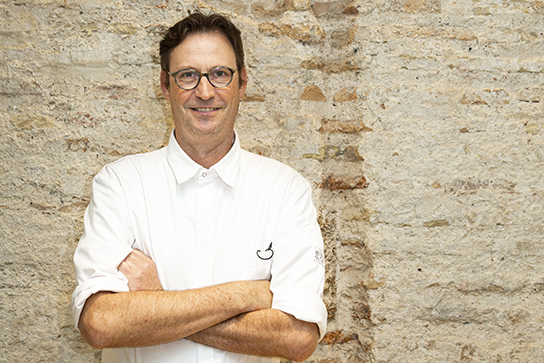
TWO ROADS ONE DESTINATION
It’s been 20 years. Leon and Paqui met along the way and together they decided to go for their dream. Now, time is on their side in this slow-cooked project.
FIND OUT ABOUT US
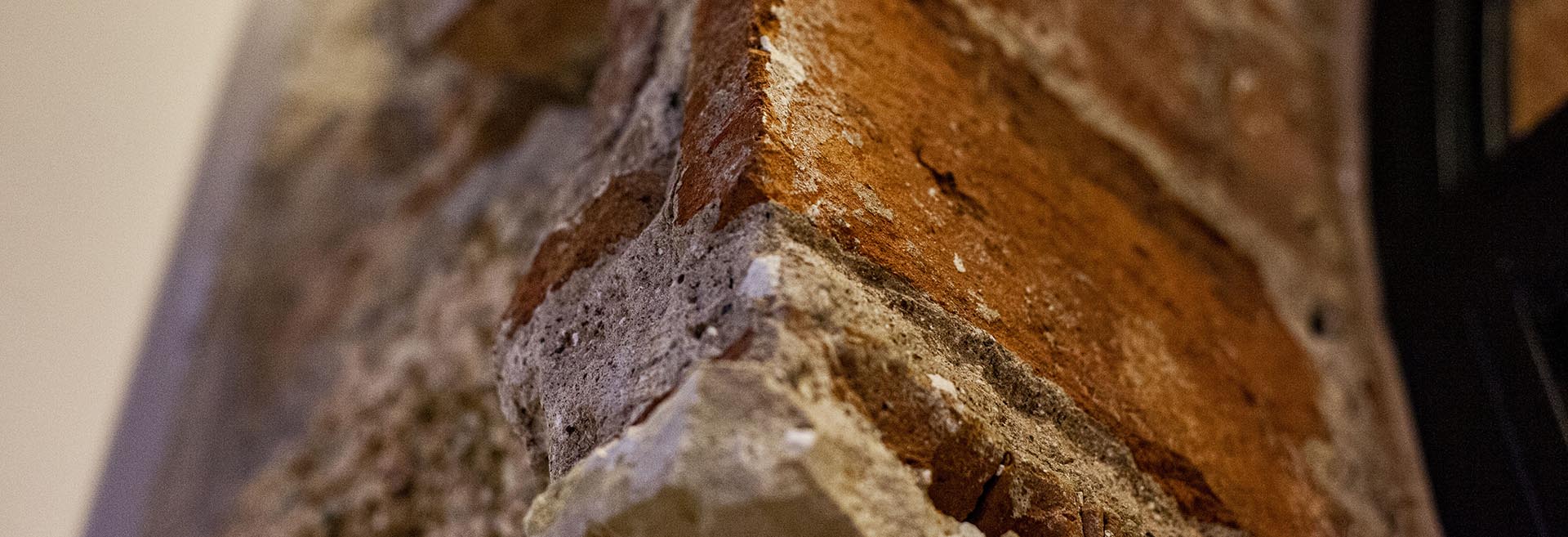
A NEW CULINARY CODE

A code is a set of rules, a system of signs to decipher ancient messages. This is the philosophy of Código de Barra, to investigate, discover, analyse and understand how the passing through time of each culture has left a major culinary legacy.
“Each culture has created its own culinary code through its own symbols. Our project involves transforming the codes that have been inscribed in our culture over time to create a new language in the cuisine of Cadiz”
Leon Griffioen
To create the new code, we will use our senses and memories in which a traditional dish is transformed and takes another shape, another texture, yet maintains its essence and its ability to convey memories of another place, another person, another time, in just a single bite..
Código de Barra discovers the link between origins, tradition and innovation, building a long path on which tradition becomes tangible, the desire to surprise is transformed into creativity, and each creation exposes part of our soul.
Welcome to the new culinary history of Cadiz..
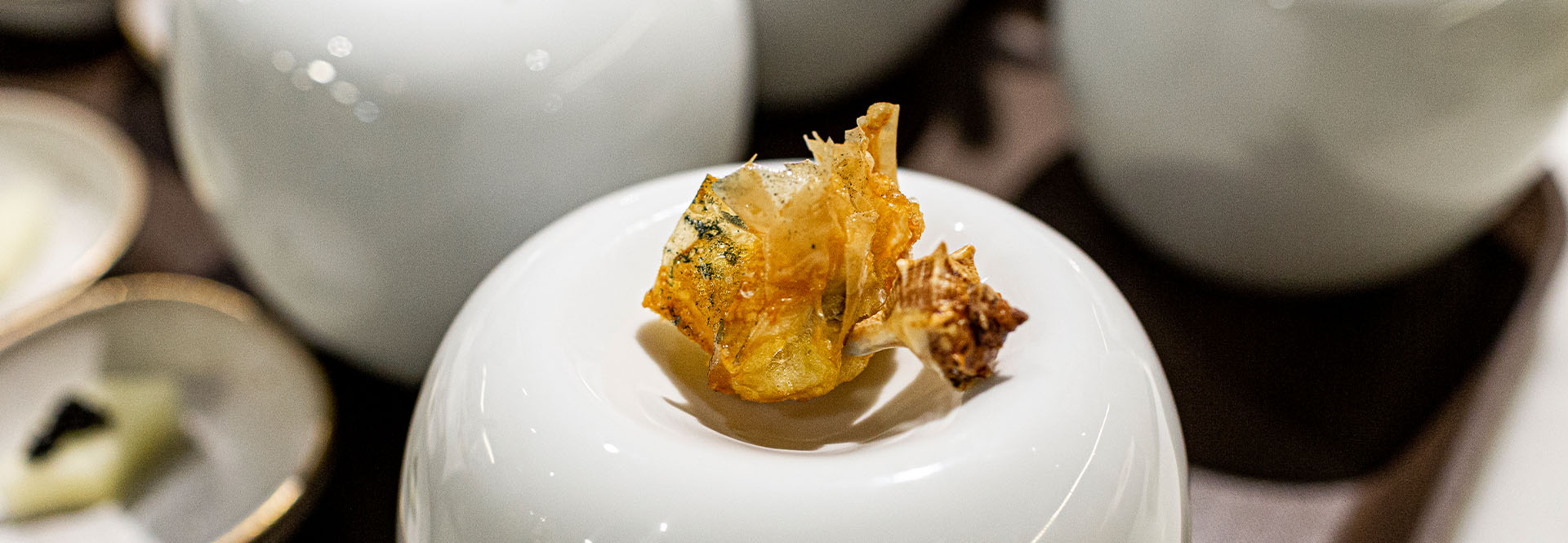
WHERE TO EAT A PART OF HISTORY IN CADIZ

THE ORIGINS OF CADIZ CUISINE
Gadir, Gades, Qadis, Cádiz… different names for the same city.
Its first name, Gadir, was given to it by the Phoenicians, who made the island of Erytheia their main trading centre on the Iberian Peninsula.
These great merchants introduced oil and wine into our culture, both of which remained to stay and form part of our culinary tradition.
Later on the Romans arrived, and Gadir became Gades. Rome brought splendour to Cadiz, making it a city of great fame in the empire. Its olive oil and its garum were important ingredients of the cuisine of that time, and became an emblem of the area.
After the fall of the Roman Empire, the Moors arrived and renamed the city Qadis. The new culture brought with it great culinary changes, the introduction of rice, and its great tradition of confectionery in which fried dough, marzipan and nougat still remain part of our cuisine.
In the Middle Ages, Cadiz became Christian and was once again an important trading port. Its relationship with several Italian republics (including Genoa and Venice) led to the adopting of culinary traditions such as the Farinata or “Torta de ceci”, said to be the forerunner of the famous Tortillita de Camarones (shrimp omelette).
And so, over time, Cadiz became the port of Europe and the stopping point for all the products brought over from the new continent, which completely transformed the cuisine of Cadiz.
Today, the shell limestone walls of Código de Barra exude part of the history of Cadiz, with its smell of salt and its taste of the sea…
Today, a new culinary codex is on the stove, eating the history of Cadiz involves taking a stroll through our tasting menus, and today marks a turning point in the new cuisine of Cadiz.
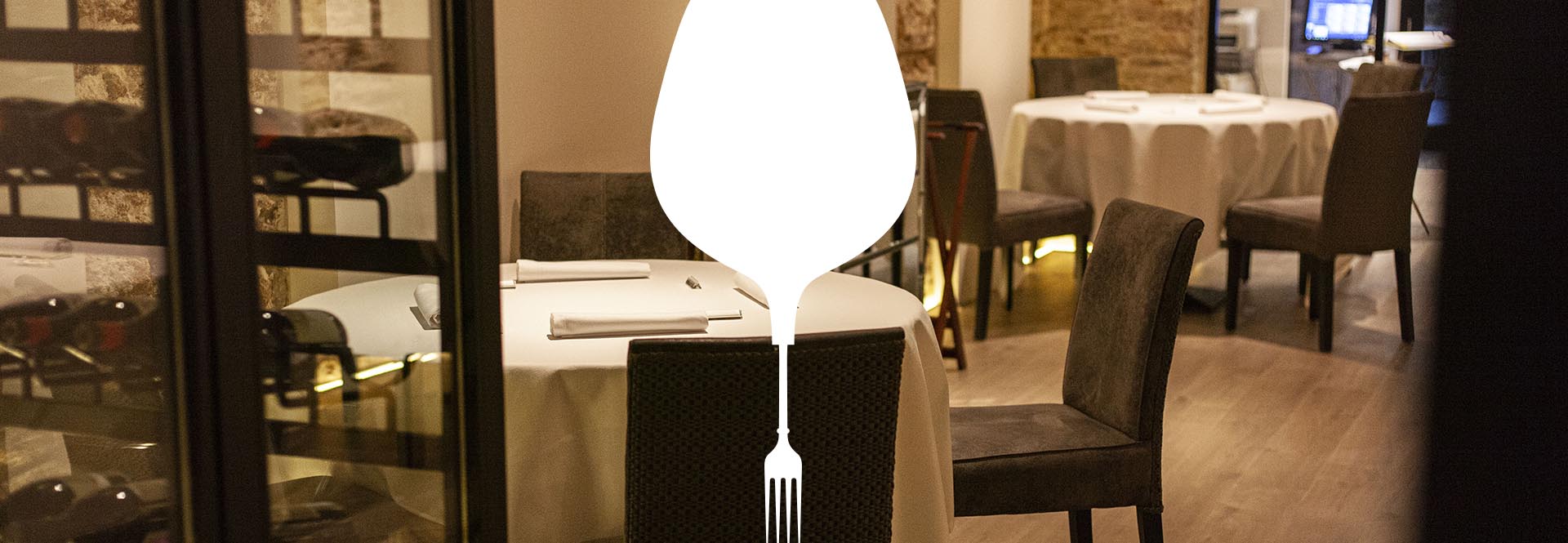
RESERVATIONS
Reservations at Bar Code are made on the website.
Our booking system enables you to check availability, to make reservations and, if the restaurant is already full on the required date, to add your request to the waiting list.
Your reservation will not be effective until you receive a confirmation message at the e-mail address you provided when you made your reservation.
Reservations are accepted up to 2 months in advance, and requests beyond this time will not be processed. The new booking period opens at midnight on the first day of each month.
Contact us with any queries or incidents at codigodebarrascadiz@gmail.com or on + 34 635 53 33 03 03, from 10 a.m. to 1 p.m. and 5.30 p.m. to 8.30 p.m., Tuesday to Thursday. From 12.00 p.m. to 1.30 p.m. and 8.00 p.m. to 9.00 p.m. on Fridays and Saturdays. We will be delighted to help you.
We are unable to assist you directly by telephone during business hours.
We apologise for any inconvenience
For more information, please read our restaurant policy and our cancellation policy.